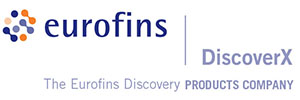Functional assays for the development of agonistic antibodies
14 September 2023
Shares
- Like
- Digg
- Del
- Tumblr
- VKontakte
- Buffer
- Love This
- Odnoklassniki
- Meneame
- Blogger
- Amazon
- Yahoo Mail
- Gmail
- AOL
- Newsvine
- HackerNews
- Evernote
- MySpace
- Mail.ru
- Viadeo
- Line
- Comments
- Yummly
- SMS
- Viber
- Telegram
- Subscribe
- Skype
- Facebook Messenger
- Kakao
- LiveJournal
- Yammer
- Edgar
- Fintel
- Mix
- Instapaper
- Copy Link
Watch this webinar to discover qualified bioassays assessing therapeutic antibody mechanisms, case studies about agonistic effects in antibodies initially deemed antagonistic, and explore Fc receptor impacts on antibody response in co-culture assays.
About this webinar
Agonistic antibodies are emerging as promising therapeutics for targeting immune checkpoints, particularly those within the TNF receptor superfamily, as they play a crucial role in regulating immune cell function, especially in the context of cancer treatment. In addition, there is a growing focus on the potential of agonistic antibodies to selectively activate co-inhibitory checkpoint receptors. These antibodies offer a promising avenue for suppressing inflammation in autoimmune diseases and restoring tolerance in graft-vs-host disease (GvHD) while avoiding the complications of global immunosuppression.
While a substantial number of clinical trials are currently underway for oncology and autoimmune indications, there is a notable scarcity of commercially available assays to support the clinical development of this class of therapeutics, impacting their time-to-clinic. Existing assays frequently fail to accurately assess the agonistic activity of antibodies as they are unable to replicate the necessary physiologically relevant conditions.
In this context, we present several case studies that highlight the pivotal role of cell-based assay approaches in driving the characterization and clinical development of agonistic antibody therapeutics targeting various checkpoint receptors. Additionally, we will discuss our data demonstrating the indispensable role of FcyR-mediated antibody clustering in establishing the otherwise elusive agonistic activity of antibodies.
Key Takeaways
- Learn about qualified, ready-to-use bioassays that evaluate the true mechanism of action for the therapeutic action of antagonistic and agonistic antibodies targeting immune checkpoints
- Hear about case studies highlighting how physiologically relevant cell-based assay design can elucidate agonistic effects in antibodies that were otherwise characterized as antagonists
- Discover how various Fc receptors differently augment the agonistic response of antibodies in co-culture assay formats.
Our speakers


Gaurav Agrawal, PhD., Associate Director of Market Development, Eurofins DiscoverX
Gaurav Agrawal earned his PhD in Cell and Molecular Biology from the Indian Institute of Science, Bangalore studying the structure-function relationship of GPCRs through conformation specific antibodies, and other biochemical and structural biology approaches. During his Post-Doctoral tenure at the University of California San Diego, Gaurav developed innovative cell-based assay approaches to identify and discover novel intracellular protein sorting and trafficking pathways essential for organelle biogenesis. At Eurofins DiscoverX, Gaurav leads the market development team working closely with the biopharma industry in supporting their cell-based assays needs for clinical development of small and large molecule therapeutics.


Venkatesh Chari, PhD, Scientific Market Development Manager , Eurofins DiscoverX
Venkatesh Chari received his PhD in Biochemistry & Cancer Biology from the University of Toledo – Medical College of Ohio. His thesis dissertation focused on identifying potential drug targets to improve the outcome of hormonal adjuvant therapy in breast and prostate cancers. Venkatesh Chari was a part of the R&D team for over 7 years at DiscoverX. In his current and new role, he is a part of the market development team and is involved in supporting method transfers to CRO and CDMO sites for lot-release programs for biologics and biosimilars,




